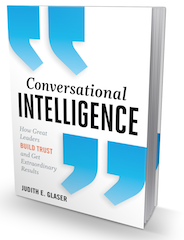What’s the Difference Between a Lie and the Truth?
“A lie is only believable if you accept it.” -Greg Williams, The Master Negotiator & Body Language Expert
Person 1: “I could tell he was lying.” Person 2: ‘How?” Person 1: “Because his words were unbelievable!” Person 2: “I missed that.”
Do you know the difference between a lie and the truth? It’s the degree to which you believe either. Let me explain.
As you’re hearing something, you assess to what degree it may be true; in part, that’s based on what you’ve known to be true from your past experiences. You continue to assess the believability of something the more you hear of it. You wonder to what degree the truth is stretched, at the point when words become suspect. As you continue to listen, once they’re stretched past your point of believability, you then consider the words to be lies.
Intellectually you may be aware of the process stated above. But, do you raise your sense of awareness to recognize the thought process you’re engaged in when it’s occurring? It’s important that you do so. In doing so, you raise your sense of consciousness to what’s said, which means you may become alert to prior passages that you overlooked. That also means, you may have allowed lies to go unchallenged, which emboldens its purveyor to continue lying.
There’s a thin line between a lie and the truth. Sometimes, it’s thinner based on who’s telling the story and who the listener is. To protect yourself in interactions with others, note what’s said, when it’s said, and the environment in which it’s said. In doing so, you’ll gain greater insight into the motivation behind when and why words part from the truth. That will also be the point when your sense of keenness insulates you from the mental depravity that occurs when one is falsely led by lies. You’ll truly be protecting yourself from mental anguish … and everything will be right with the world.
What does this have to do with negotiations?
Most negotiators will misrepresent the truth during negotiations. It’s a fact and if you don’t think it occurs you’re being pollyannaish. Recognize that for what it’s worth.
Consider this, if a negotiator completely disclosed his circumstances, he’d expose his vulnerability and weaken his position. Thus, to prevent that from occurring, he’ll withhold aspects of his position to enhance his outcome. He’ll stretch the truth to accomplish that means. By noting his stretch point, you gain insight into his source of motivation. That will lend insight into the importance of the point. You can hone that insight to create discomfort for him. Do so and observe how quickly he wants to move from away from that discomfort. As an aside, the more he wants to move from that point, the more angst he’ll be displaying about his uncomfortableness.
It’s said that all lies are born from truth. That means a lie is only a lie to the degree that the people involved believe it to be. In your negotiations, understand the purpose that a lie serves and you’ll have greater insight as to where the truth lies.
Remember, you’re always negotiating!
After reading this article, what are you thinking? I’d really like to know. Reach me at Greg@TheMasterNegotiator.com
To receive Greg’s free “Negotiation Tip of the Week” and the “Sunday Negotiation Insight” click here http://www.themasternegotiator.com/greg-williams/
#Emotion #Lies #Business #SmallBusiness #Negotiation #NegotiatingWithABully #Power #Perception #EmotionalControl #relationships #liars #HowToNegotiateBetter #CSuite #TheMasterNegotiator #ControlEmotions
- [PRESS RELEASE] C-Suite Network™ Expands to Dallas and Announces Game-Changing Partnership with Flex Workspace Solutions - January 9, 2024
- Ushering in the Future 500 – White Paper - September 8, 2022
- Make Candor a Priority - September 8, 2022






